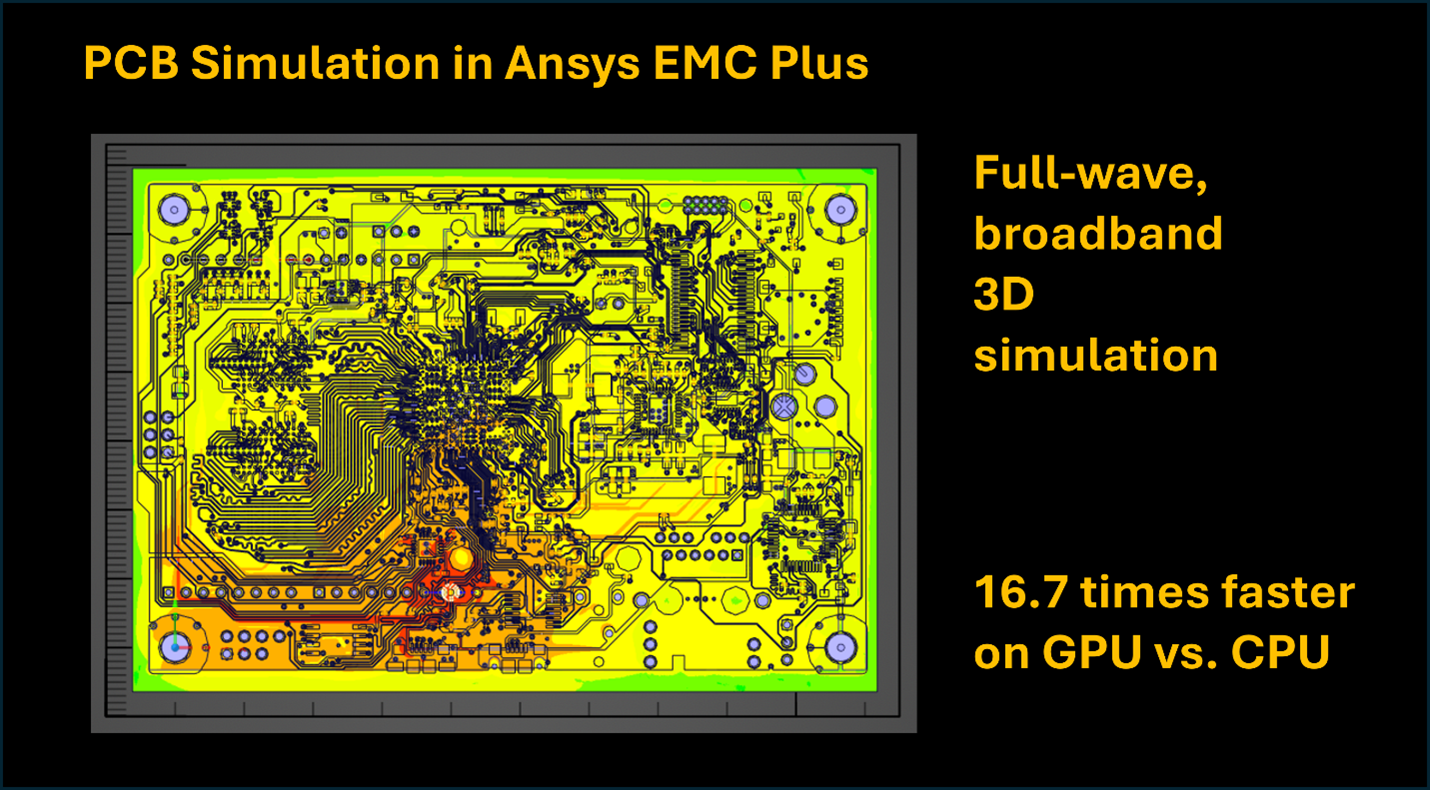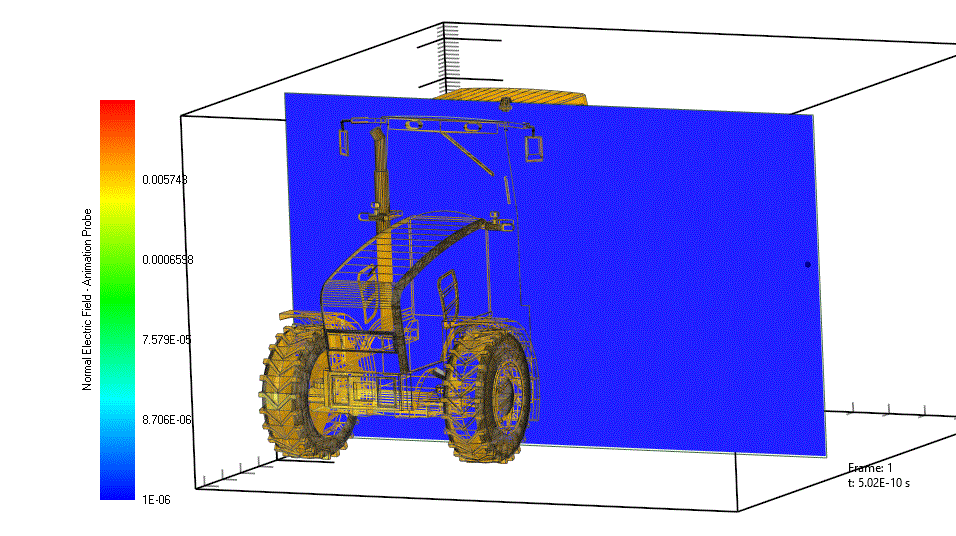Using Software to Meet EMC Standards for Electronics
Introduction
Electromagnetic compatibility (EMC) is a critical aspect of electronic system design, especially for applications such as automotive, aerospace, defense, medical, and industrial. EMC ensures that electronic devices can operate without interfering with other devices or being affected by external electromagnetic fields. EMC also ensures that electronic devices comply with regulatory standards and customer expectations.
However, achieving EMC is not an easy task, as electronic systems become more complex, compact, and integrated. Designers and engineers need to consider various sources of electromagnetic interference (EMI), such as power supplies, cables, connectors, antennas, and printed circuit boards (PCBs). They also need to account for the effects of electromagnetic fields on the functionality, reliability, and safety of electronic components and systems.

One of the main sources of EMI in electronic systems is the PCB, which can act as a radiator or a receiver of electromagnetic fields. To reduce the EMI from the PCB, designers need to consider factors such as layout, routing, grounding, shielding, and filtering. Ansys EMC Plus allows you to simulate the electromagnetic behavior of your PCB, including the effects of cables, connectors, and enclosures.
To address these challenges, Ansys has developed a comprehensive solution for EMC analysis and verification: Ansys EMC Plus. Ansys EMC Plus is a powerful tool that enables you to simulate and optimize the electromagnetic performance of your electronic systems, from component to system level. With Ansys EMC Plus, you can:
- Perform EMC pre-compliance testing and certification for various standards, such as CISPR, IEC, ISO, MIL-STD, and DO-160
- Analyze and mitigate EMI issues, such as radiated and conducted emissions, susceptibility, and immunity
- Optimize the EMC performance of your PCBs, cables, connectors, and enclosures
- Validate the EMC performance of your electronic systems in realistic operating scenarios and environments
- Integrate with Ansys Electronics Desktop and Ansys HFSS for seamless workflow and data exchange
In this blog post, we will introduce some of the key features and enhancements of Ansys EMC Plus 2024 R1, the latest release of Ansys EMC Plus. We will also show you how Ansys EMC Plus can help you design and verify electronic systems that meet EMC standards and performance requirements.
What’s New in Ansys EMC Plus 2024 R1?
GPU Accelerated Solver: A Game-Changer The new GPU Accelerated Solver is a standout feature, promising to revolutionize the way simulations are run. By harnessing the power of GPU acceleration, Ansys EMC Plus now executes simulations with unprecedented speed, making it a formidable tool in any engineer’s arsenal. Our webinar dives deeper into maximizing electronic performance.

The GPU Accelerated Solver is not only a game-changer for EMC simulations, but also for full PCB simulations. As shown in the image below, a full PCB simulation of a complex board only 3.2 hours on a GPU, compared to 53.5 hours on a CPU. This means that the GPU solver is 16.7 times faster than the CPU solver, enabling engineers to run simulations in a fraction of the time and iterate designs more quickly.
Visualization and Simulation: Seeing is Believing With the 3D Field and Current Visualization, engineers can now delve into the intricacies of electromagnetic fields with ease. The Transfer Impedance Simulator and the Radiation Pattern Probe further extend the software’s capabilities, offering detailed insights into complex electromagnetic phenomena.

Ansys EMC Plus delivers stunning 3D results visualization that lets you explore electromagnetic fields with unparalleled precision and clarity.
Enhanced Connectivity and Meshing: Precision Meets Efficiency The software’s ability to automatically assign cable wiring connectivity to 3D cables from mechanical CAD and its Direct Mesh Editing Features streamline the simulation process. The introduction of non-circular multiconductor transmission line conductor cross sections adds another layer of precision to the modeling.
Import and Integration: Bridging the Gap Ansys EMC Plus 2024 R1 boasts significant improvements in PCB Geometry Import, ensuring seamless integration and a smoother workflow. The Standalone Transient Circuit Solver and the integration with STK and EMC Plus Lightning Probability Tool exemplify the software’s commitment to comprehensive electromagnetic analysis.
Safety and Compliance: Ahead of the Curve Specific Absorption Rate (SAR) Modeling is a critical update, particularly for consumer electronics, where safety standards are stringent. This feature allows engineers to ensure compliance with international safety regulations, maintaining user safety as a paramount concern.
Conclusion: The Future of Electromagnetic Simulation Ansys EMC Plus 2024 R1 is a testament to the relentless pursuit of excellence in the field of electromagnetic simulation. With its robust features and user-centric enhancements, it stands as an indispensable tool for engineers looking to push the boundaries of electronics design.
How Can Ansys EMC Plus Help You?
Ansys EMC Plus can help you to design and verify electronic systems that meet EMC standards and performance requirements in various ways. Here are some examples:
- Ansys EMC Plus can help you to perform EMC pre-compliance testing and certification for your electronic systems and avoid costly and time-consuming EMC failures and rework. You can use Ansys EMC Plus to simulate and verify the EMC performance of your electronic systems for various standards, such as CISPR, IEC, ISO, MIL-STD, and DO-160. You can also use Ansys EMC Plus to compare and optimize the EMC performance of different design alternatives and scenarios.
- Ansys EMC Plus can help you to analyze and mitigate EMI issues for your electronic systems, and improve the functionality, reliability, and safety of your electronic systems. You can use Ansys EMC Plus to identify and locate the sources and paths of EMI, such as radiated and conducted emissions, susceptibility, and immunity. You can also use Ansys EMC Plus to evaluate and implement EMI mitigation strategies, such as shielding, filtering, grounding, and routing.
- Ansys EMC Plus can help you to optimize the EMC performance of your PCBs, cables, connectors, and enclosures, and reduce the size, weight, and cost of your electronic systems. You can use Ansys EMC Plus to model and simulate the electromagnetic behavior of your PCBs, cables, connectors, and enclosures, and optimize their geometry, layout, and materials. You can also use Ansys EMC Plus to assess the impact of parasitics, losses, and dispersion on the EMC performance of your PCBs, cables, connectors, and enclosures.
- Ansys EMC Plus can help you to validate the EMC performance of your electronic systems in realistic operating scenarios and environments and ensure the compatibility and interoperability of your electronic systems. You can use Ansys EMC Plus to simulate and verify the EMC performance of your electronic systems in various operating modes, such as idle, active, and standby. You can also use Ansys EMC Plus to simulate and verify the EMC performance of your electronic systems in various environments, such as near-field, far-field, and multipath.
- Ansys EMC Plus can help you to integrate with Ansys Electronics Desktop and Ansys HFSS for seamless workflow and data exchange and leverage the power and versatility of Ansys electronics solutions. You can also use Ansys EMC Plus to perform field import with Ansys Electronics Desktop and Ansys HFSS, and achieve multi-scale EMC analysis and verification.
Conclusion
Ansys EMC Plus is a powerful solution for EMC analysis and verification, that enables you to design and verify electronic systems that meet EMC standards and performance requirements. Ansys EMC Plus 2024 R1 is the latest release of Ansys EMC Plus, that brings several new features and enhancements that improve the accuracy, efficiency, and usability of EMC analysis and verification. With Ansys EMC Plus, you can simulate and optimize the electromagnetic performance of your electronic systems, from component to system level, and across various domains, scales, and scenarios. Our experts offer a comprehensive webinar for designing and verifying electronic systems with unmatched EMC compliance.
The fastest time-to-value for complex device and platform EMI/EMC simulation.
Ansys EMC Plus features a forgiving mesh and hybrid sub-cell solvers that allow for extreme geometric complexity without extreme user effort to clean and prepare geometry for simulation. Ansys EMC Plus also has a fast and intuitive user-interface that includes automated workflows and wizards to help inexperienced users become productive quickly. Ansys EMC Plus can import and merge 3D CAD geometry and cable database information automatically and create a consistent and complete model for EMI/EMC analysis. Ansys EMC Plus can also leverage the parallel computing power of GPUs to accelerate the simulation speed dramatically and provide more detailed results for larger models.

Figure 4. EMC Plus Has a Short Time-to-Value by Making Analysis Fast and Easy to Learn
EMC Plus is a useful addition to testing programs. Ansys EMC Plus can simulate various EMI/EMC tests, such as radiated emissions, radiated immunity, conducted emissions, conducted immunity, bulk current injection, transient immunity, etc. Ansys EMC Plus can also model the effects of different environments, such as ground planes, reverberation chamber, anechoic chamber, etc. Ansys EMC Plus can generate reports and plots that compare the simulation results with the standards and regulations and identify the sources and paths of EMI problems. Ansys EMC Plus can also perform parametric studies and design optimization to improve the EMI/EMC performance of the device or platform.
EMC Plus provides seamless integrations with other Ansys tools and third-party software. Ansys EMC Plus can import and export data in various formats, such as STL, STEP, IGES, XLS, CSV, etc. Ansys EMC Plus can also interface with other Ansys tools, such Ansys HFSS, Ansys SIwave, or Ansys Material Intelligence, to perform multi-domain analysis of the device or platform. Ansys EMC Plus can also work Ansys optiSLang or with third-party software, such as MATLAB or Python, to perform custom scripting and automation of the simulation process.
With these features and benefits, Ansys EMC Plus can help engineers in heavy industry to perform EMI/EMC analysis of their devices and platforms more efficiently and effectively, and to ensure compliance with the EMI/EMC standards and regulations. Ansys EMC Plus can also help engineers to reduce the cost and time of physical testing and prototyping, and to enhance the quality and reliability of their products.



